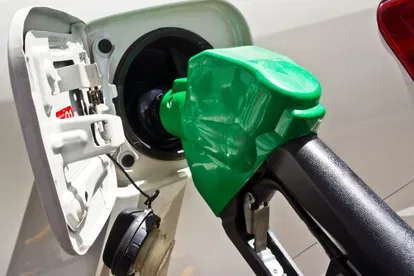Category:
Diesel Fuel Grades: What Do the Different Types Mean?

You likely know that diesel fuel is used in many different types of vehicles, but did you also know that there are many different types of diesel fuels, and each has its purpose? Whether you need diesel fuel for heavy-duty trucks, construction equipment, farm equipment, or marine vessels, choosing the right type of diesel fuel is essential.
This article will explain the various types of diesel fuel grade types, review the common types of diesel fuels, and cover specialty diesel fuel types. You’ll gain a better understanding of diesel fuel and learn what type of fuel is best for your vehicle.
What Are Common Diesel Fuel Types?
Diesel fuel is more efficient than gasoline — in fact, it’s 20% more efficient. To ensure efficiency and longevity of your engine, it’s important to understand the various types of diesel fuel grades available.
In addition to doing your research, always check the vehicle manufacturer’s recommendations by checking the manual. Let’s cover common diesel fuel grades.
Diesel #1 (Grade 1-D)
Otherwise known as Grade 1-D, Diesel #1 isn’t the most efficient compared to some other types of diesel fuels, but it’s the best choice for situations like rough winter conditions. Due to its higher cetane rating, Diesel #1 performs well in cold weather.
Diesel #1 also has lower viscosity than other diesel fuels, meaning a slower combustion rate. Additionally, Diesel #1 has a lower pour point, meaning the fuel’s characteristics allow it to continue flowing freely after temperatures have dropped.
Diesel #2 (Grade 2-D)
The most common diesel fuel used today is Diesel #2, or Grade 2-D. Use cases span multiple industries, but use in construction equipment, commercial trucks, and buses are some of the most frequent use cases.
Diesel #2 fuel is typically the type of diesel fuel sold at gas stations. Diesel #2 beats out Diesel #1 regarding fuel economy, but Grade 2-D fuels don’t perform well in cold temperatures and are best used in warmer weather conditions for optimal performance. If weather conditions fall to low extreme temperatures, one common challenge that can occur is gelling.
Diesel #4 (Grade 4-D)
Diesel #4 is the preferred diesel fuel type for high-load engines that run at a low speed. Sometimes referred to as marine diesel, its use cases include non-automotive or off-road equipment. Industrial examples include boilers and furnaces used for power generation or heating sources.
There isn’t a standard Diesel Grade #3 in the USA.
What Are Some Specialized Diesel Fuel Types?
Aside from the above three types of diesel, there are also some specialized diesel fuel types that are helpful to know.
Biodiesel and Renewable Diesel
These diesel fuels are the most friendly to the environment, as they are derived from materials such as animal fats, recycled grease, and vegetable oils, as opposed to fossil fuels. Besides being a more lubricant diesel fuel, these diesel fuel types are good for the planet, as biodiesel and renewable diesel fuels reduce greenhouse gas emissions.
Winterized Diesel
For the best of both worlds, operators use winterized diesel fuel, otherwise known as blended diesel fuel. Designed to maintain consistent performance in cold weather conditions, winterized diesel fuel combines Diesel #1 and Diesel #2.
Off-Road Diesel (Dyed Diesel)
Before using off-road diesel, also referred to as dyed diesel, you’ll want to know its purpose and the risks involved.
If you aren’t driving on the highway, such as in a long-haul truck, your vehicle doesn’t need diesel fuel designed for this type of driving. For vehicles such as construction equipment or farm equipment, off-road diesel fuel is the correct fuel type for these situations.
It should be noted that it is illegal to use dyed diesel fuels in on-road vehicles.
Ultra-Low Sulfur Diesel
Sometimes referred to as ULSD, ultra-low sulfur diesel has its place as a specialized diesel fuel. ULSD is known to be a cleaner burn diesel fuel than many other types, and this lessens harmful emissions and pollution in our environment.
Ultra-low sulfur diesel was created in response to various regulatory actions intended to reduce the emissions created by diesel fuels.
There are many great benefits to using ULSD, most notably the greater contribution to lowering emissions, but if you’re not sure if this is the right diesel fuel for you, it’s best to consult with a professional well-versed in the various types of diesel fuels.
When selecting the right diesel fuel, there are many factors to consider, including what type of climate the vehicle will need to perform in, what regulations and legal implications may apply, the engine type, and environmental factors.
Summary
If you want to ensure optimal efficiency and longevity for your engine, having a solid understanding of the different types of diesel fuels and the various fuel grades is essential.
When it comes to your fuel needs, fuel additives, and vehicle or fleet preventative maintenance, you can rely on the experts at Cadence Petroleum.
Sources:
Diesel vs. Gas Engines: Key Differences Between Gas and Diesel | Universal Technical Institute